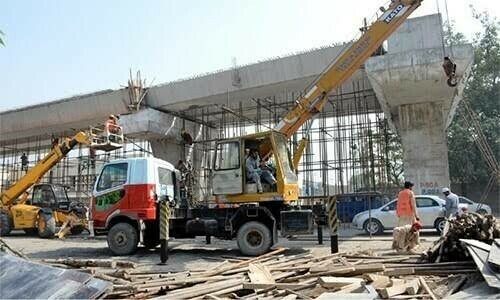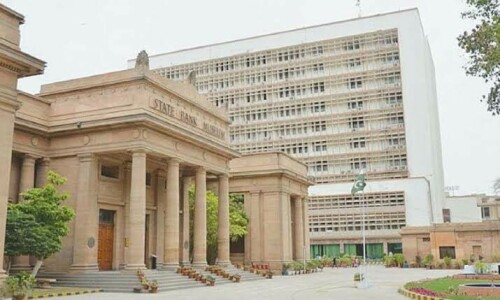We, Pakistanis, have a certain pattern of responding to national disasters. The kind which involves developing a bubble of patriotism and its quick bursting after a certain period that is only effective for short-term solutions. Such has been the case with the recent floods in the county. It has been nearly three months since the waters gushed through our lands and although water levels have receded, the biggest natural disaster in modern history still yearns to create the hype it deserved. There has been an exponential decrease of passion, donations and the will to rehabilitate the 20 million affected by the floods once the holy month of Ramazan ended.
We travelled to Dera Din Panah, in South Punjab to make another delivery of relief aid towards the end of October. We had already visited this particular area twice earlier, but continuous calls for help from the locals forced us to take note of the immediate need of the affectees. With supplies of blankets and warm clothes for about 1,000 families, we left for the area. With the onset of winter, the needs of the people have changed from ration and temporary shelters to warm clothes, self-sustaining rebuilding projects, prolonged medical care and permanent shelters.
As per our survey, 140 houses in basti Hyder Ghazi, 25 in basti Sattiwala, 21 in basti Bhagsar, 40 in Jamali, 18 in Mir Hassanwala, 30 in Samandari, 10-15 in basti Arra, 20 in Mai Sohagan and, around 100 houses in main city had been completely destroyed. Farmers, labourers and small-scale businessmen have taken loans from families and friends and have started rebuilding their houses, while those who couldn’t afford to are still waiting for some sort of relief.
The situation had changed in the past few weeks as only traces of water and its destruction remained. This town had been adversely affected, with nearly 99 per cent of it underwater. Locals told me only one street, which housed the mausoleum of Sufi Saint Syed Abdul Wahab Bukhari, known as Hazrat Din Panah, after whom the town was named, did not drown.
The complaints people had (from the shopkeepers to small farmers) were the same: not having enough money to start running their business again, not having enough money to prepare farmlands as the cost of per acre cost to water their fields had increased considerably as the canal irrigation systems had been damaged due to the floods. Local labourers also stated that ‘foreign’ NGOs were not involving local manpower for rehabilitation, which could be beneficial to the community and also provide these people with a steady source of income.
The solution, as they put it, was to start self-sustaining projects involving the local communities, like providing business-related aid to help small business owners, providing diesel or bearing the cost for preparing the farmlands of local farmers, stressing upon NGO’s to hire local laborers for rebuilding projects and other entrepreneurial projects which can be sustainable and will help the locals stand on their feet again.
This rehabilitation phase will cost us more and require more focus. We cannot let the notion of “we have already helped,” run unbridled through our masses and the media must play its role in creating this awareness. It doesn’t feel like we are in midst of one of the biggest humanitarian crisis of recent history. We must change this mindset, in whatever capacity we can.
Syed Ali Abbas Zaidi is an aeronautical engineer, a poet and a social activist who is the founding force & chairperson of the Pakistan Youth Alliance. He can be found on Twitter and is available on Facebook.
*Photos by author
The views expressed by this blogger and in the following reader comments do not necessarily reflect the views and policies of the Dawn Media Group.











































